Chamomile
How to submit an article:
- Registered users can submit any published journal article that has a unique DOI (Digital Object Identifier) name or link to Research Hub.
- For example, you can paste the full DOI link:
https://doi.org/10.1109/5.771073or just the DOI name:10.1109/5.771073into the field above and click submit. - The person who is first to submit a valid article to Research Hub will forever be credited for it, and every article submission earns you +6 Research Points.
Related Topics
Published research studies are articles that present the findings of original research that has undergone a peer-review process and has been made publicly available in scholarly journals, books or other media.

A randomized clinical trial to test efficacy of chamomile and saffron for neuroprotective and anti-inflammatory responses in depressive patients
2022 Oct Heliyon Ahmad S, Azhar A, Tikmani P, Rafique H, Khan A, Mesiya H, et al.
Randomised Controlled Trial Anti-Inflammatory Chamomile Saffron NeuroprotectiveThe combined use of chamomile and saffron with usual medication enhances the efficacy against depression and ensures long term improvement.
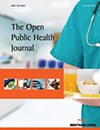
Comparing the Effect of Chamomile and Mefenamic Acid on Primary Dysmenorrhea Symptoms and Menstrual Bleeding: A Randomized Clinical Trial
2022 Aug 23 The Open Public Health Journal Shabani F, Narenji F, Vakilian K, Zareian MA, Bozorgi M, Bioos S, et al.
Randomised Controlled Trial Period Pain Chamomile Mefenamic AcidChamomile sachets could be a viable alternate treatment for primary dysmenorrhea, as they've shown similar effects to mefenamic acid in reducing pain and bleeding.

The effects of Lavender and Chamomile essential oil inhalation aromatherapy on depression, anxiety and stress in older community-dwelling people: A randomized controlled trial
2022 May Explore: The Journal of Science & Healing Ebrahimi H, Mardani A, Basirinezhad MH, Hamidzadeh A, Eskandari F
Randomised Controlled Trial Lavender Essential Oil Chamomile Stress Depression AnxietyInhalation aromatherapy using lavender and chamomile essential oils effectively reduces depression, anxiety, and stress levels in community-dwelling older adults.
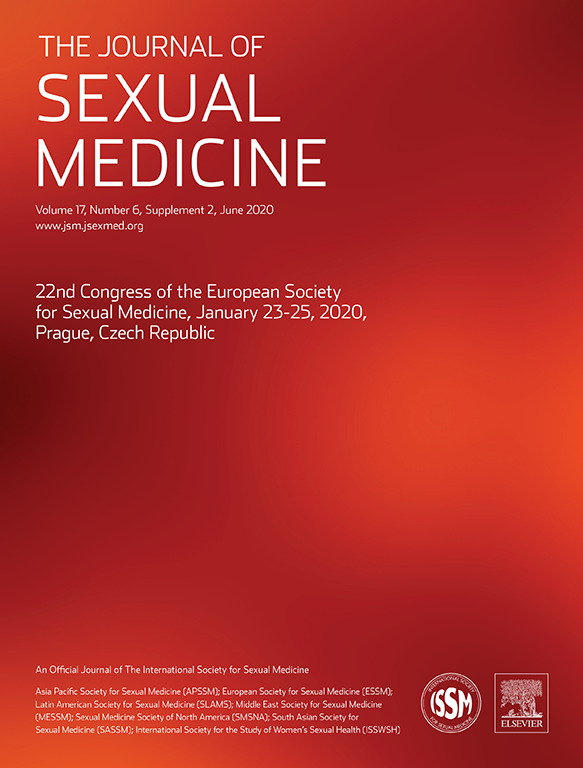
Effect of Chamomile Vaginal Gel on the Sexual Function in Postmenopausal Women: A Double-Blind Randomized Controlled Trial
2022 Apr 07 The Journal of Sexual Medicine Bosak Z, Iravani M, Moghimipour E, Haghighizadeh M, Jelodarian P
Randomised Controlled Trial Female Sexual Function Chamomile PostmenopausalChamomile vaginal gel effectively improved the sexual function of postmenopausal women, and can be a potential treatment option for those unable to undergo hormone therapy.
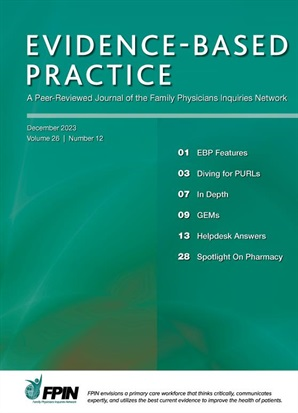
Is chamomile effective to treat cyclic menstrual pain?
2022 Feb 08 Evidence-Based Practice Alcaraz EM, Laumbach SG, Amico J
Randomised Controlled Trial Mefenamic AcidChamomile was found to be less effective than mefenamic acid for relieving cyclic menstrual pain.
Research insights are moderated by the Research Hub team and offer an at-a-glance overview of interesting research findings.

2022 Heliyon
The combined use of chamomile and saffron with usual medication enhances the efficacy against depression and ensures long term improvement.
Randomised Controlled Trial Anti-Inflammatory Neuroprotective Saffron
A randomized clinical trial to test efficacy of chamomile and saffron for neuroprotective and anti-inflammatory responses in depressive patients
Ahmad S, Azhar A, Tikmani P, Rafique H, Khan A, Mesiya H, et al.

2022 The Open Public Health Journal
Chamomile sachets could be a viable alternate treatment for primary dysmenorrhea, as they've shown similar effects to mefenamic acid in reducing pain and bleeding.
Randomised Controlled Trial Mefenamic Acid Period Pain
Comparing the Effect of Chamomile and Mefenamic Acid on Primary Dysmenorrhea Symptoms and Menstrual Bleeding: A Randomized Clinical Trial
Shabani F, Narenji F, Vakilian K, Zareian MA, Bozorgi M, Bioos S, et al.

2022 Explore: The Journal of Science & Healing
Inhalation aromatherapy using lavender and chamomile essential oils effectively reduces depression, anxiety, and stress levels in community-dwelling older adults.
Randomised Controlled Trial Anxiety Depression Lavender Essential Oil Stress
The effects of Lavender and Chamomile essential oil inhalation aromatherapy on depression, anxiety and stress in older community-dwelling people: A randomized controlled trial
Ebrahimi H, Mardani A, Basirinezhad MH, Hamidzadeh A, Eskandari F

2022 The Journal of Sexual Medicine
Chamomile vaginal gel effectively improved the sexual function of postmenopausal women, and can be a potential treatment option for those unable to undergo hormone therapy.
Randomised Controlled Trial Female Sexual Function Postmenopausal
Effect of Chamomile Vaginal Gel on the Sexual Function in Postmenopausal Women: A Double-Blind Randomized Controlled Trial
Bosak Z, Iravani M, Moghimipour E, Haghighizadeh M, Jelodarian P

2022 Evidence-Based Practice
Chamomile was found to be less effective than mefenamic acid for relieving cyclic menstrual pain.
Randomised Controlled Trial Mefenamic Acid
Is chamomile effective to treat cyclic menstrual pain?
Alcaraz EM, Laumbach SG, Amico J
Review Articles
Review articles summarise and critically evaluate the current state of research on a specific topic or field by synthesising multiple primary research studies.
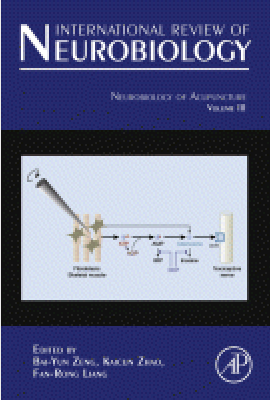
Nutraceutical and phytotherapeutic support in pregnancy
2022 Jan International Review of Neurobiology Dillard DM
In the chapter that follows, herbal supplements regularly used during pregnancy, including German and Roman chamomile, echinacea, garlic, ginger, lavender, lemon balm, mallow, marshmallow, the mints, psyllium, and witch hazel, are reviewed for available evidence.
Review Article Pregnancy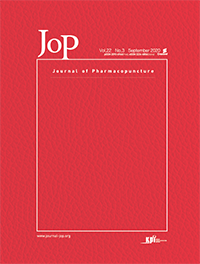
Efficacy of Chamomile in the Treatment of Premenstrual Syndrome: A Systematic Review
2019 Dec 31 Journal of Pharmacopuncture Khalesi ZB, Beiranvand SP, Bokaie M
Systematic Review ChamomileChamomile shows promise in alleviating premenstrual syndrome (PMS) symptoms.

Therapeutic efficacy and safety of chamomile for state anxiety, generalized anxiety disorder, insomnia, and sleep quality: A systematic review and meta‐analysis of randomized trials and quasi‐randomized trials
2019 Apr 21 Phytotherapy Research Hieu TH, Dibas M, Surya Dila KA, Sherif NA, Hashmi MU, Mahmoud M, et al.
Meta-Analysis Systematic Review Anxiety SleepChamomile has demonstrative positive effects on generalized anxiety disorders and sleep quality, but exhibits minimal impact on state anxiety and insomnia.
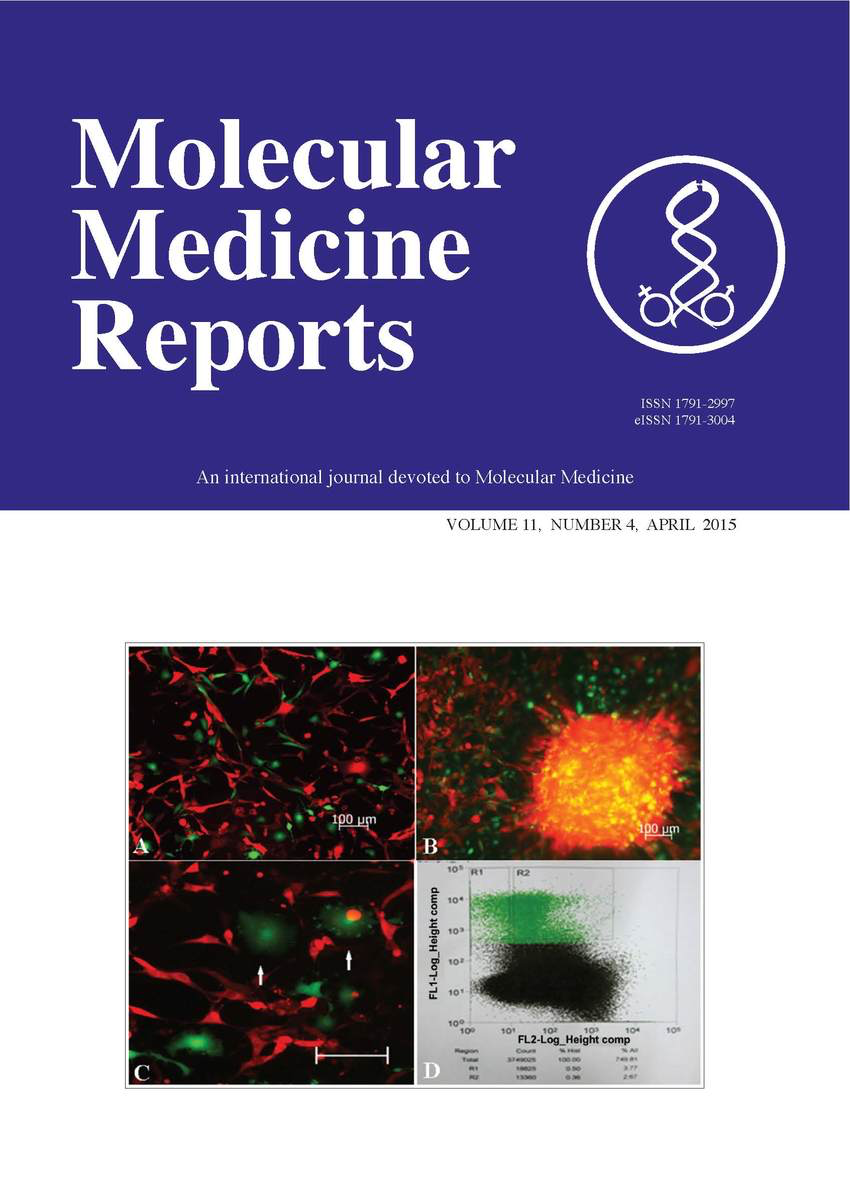
Chamomile: A herbal medicine of the past with a bright future (Review)
2010 Sep 28 Molecular Medicine Reports Gupta
Theoretical Article Review Article ChamomileChamomile, with its numerous terpenoids and flavonoids, has a vast range of medicinal uses and is being developed as a human health promoting therapeutic agent.
Clinical Trials
Clinical trials are research studies that involve people and are conducted to evaluate the safety and efficacy of new treatments or interventions, such as drugs, medical devices, or behavioural therapies.

A randomized clinical trial to test efficacy of chamomile and saffron for neuroprotective and anti-inflammatory responses in depressive patients
2022 Oct Heliyon Ahmad S, Azhar A, Tikmani P, Rafique H, Khan A, Mesiya H, et al.
Randomised Controlled Trial Anti-Inflammatory Chamomile Saffron NeuroprotectiveThe combined use of chamomile and saffron with usual medication enhances the efficacy against depression and ensures long term improvement.

Comparing the Effect of Chamomile and Mefenamic Acid on Primary Dysmenorrhea Symptoms and Menstrual Bleeding: A Randomized Clinical Trial
2022 Aug 23 The Open Public Health Journal Shabani F, Narenji F, Vakilian K, Zareian MA, Bozorgi M, Bioos S, et al.
Randomised Controlled Trial Period Pain Chamomile Mefenamic AcidChamomile sachets could be a viable alternate treatment for primary dysmenorrhea, as they've shown similar effects to mefenamic acid in reducing pain and bleeding.

The effects of Lavender and Chamomile essential oil inhalation aromatherapy on depression, anxiety and stress in older community-dwelling people: A randomized controlled trial
2022 May Explore: The Journal of Science & Healing Ebrahimi H, Mardani A, Basirinezhad MH, Hamidzadeh A, Eskandari F
Randomised Controlled Trial Lavender Essential Oil Chamomile Stress Depression AnxietyInhalation aromatherapy using lavender and chamomile essential oils effectively reduces depression, anxiety, and stress levels in community-dwelling older adults.

Effect of Chamomile Vaginal Gel on the Sexual Function in Postmenopausal Women: A Double-Blind Randomized Controlled Trial
2022 Apr 07 The Journal of Sexual Medicine Bosak Z, Iravani M, Moghimipour E, Haghighizadeh M, Jelodarian P
Randomised Controlled Trial Female Sexual Function Chamomile PostmenopausalChamomile vaginal gel effectively improved the sexual function of postmenopausal women, and can be a potential treatment option for those unable to undergo hormone therapy.

Is chamomile effective to treat cyclic menstrual pain?
2022 Feb 08 Evidence-Based Practice Alcaraz EM, Laumbach SG, Amico J
Randomised Controlled Trial Mefenamic AcidChamomile was found to be less effective than mefenamic acid for relieving cyclic menstrual pain.
Study Protocols
Published study protocols are detailed plans that outline the objectives, methodology, statistical analyses, and organisation of a research study that have been made publicly available for others to review and use as a reference.
Presentation Slides

Randomised Controlled Trial
The combined use of chamomile and saffron with usual medication enhances the efficacy against depression and ensures long term improvement.
Ahmad S, Azhar A, Tikmani P, Rafique H, Khan A, Mesiya H, Saeed H

Randomised Controlled Trial
Chamomile sachets could be a viable alternate treatment for primary dysmenorrhea, as they've shown similar effects to mefenamic acid in reducing pain and bleeding.
Shabani F, Narenji F, Vakilian K, Zareian MA, Bozorgi M, Bioos S, Nejatbakhsh F

Randomised Controlled Trial
Inhalation aromatherapy using lavender and chamomile essential oils effectively reduces depression, anxiety, and stress levels in community-dwelling older adults.
Ebrahimi H, Mardani A, Basirinezhad MH, Hamidzadeh A, Eskandari F

Randomised Controlled Trial
Chamomile vaginal gel effectively improved the sexual function of postmenopausal women, and can be a potential treatment option for those unable to undergo hormone therapy.
Bosak Z, Iravani M, Moghimipour E, Haghighizadeh M, Jelodarian P

Randomised Controlled Trial
Chamomile was found to be less effective than mefenamic acid for relieving cyclic menstrual pain.
Alcaraz EM, Laumbach SG, Amico J
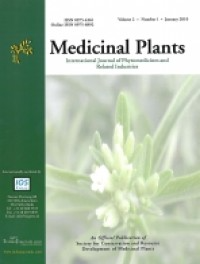
Randomised Controlled Trial
Chamomile can significantly improve menstrual regulation and decrease testosterone levels in women of reproductive age with polycystic ovary syndrome.
Heidary M, Dokuhaki S, Yazdanpanahi Z, Dabbaghmanesh MH, Emamghoreishi M, Akbarzadeh M
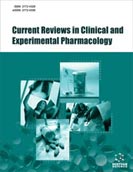
Randomised Controlled Trial
Inhalation of chamomile oil significantly reduces pain after cesarean section in first-time mothers, decreasing the need for analgesics.
Zardosht R, Basiri A, Sahebkar A, Emami SA
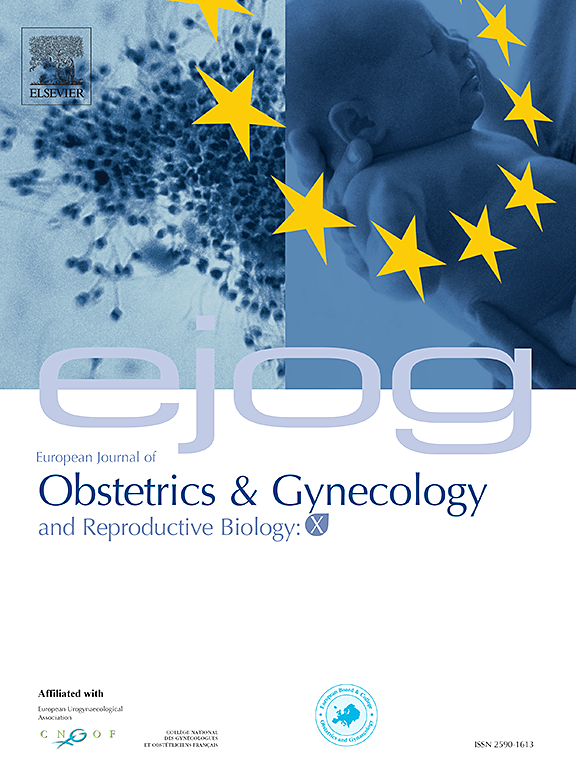
Randomised Controlled Trial
Chamomile capsules prove effective in reducing emotional symptoms related to menstrual cycles.
Najafi Mollabashi E, Ziaie T, Bostani Khalesi Z

Randomised Controlled Trial
The use of ginger, chamomile, and honey significantly diminished the intensity of dysmenorrhea pain as compared to the use of mefenamic acid.
Shabani F, Chabra A, Vakilian K, Bioos S, Bozorgi M, Ayati MH, Nejatbakhsh F

Randomised Controlled Trial
Chamomile capsules can decrease the amount of menstrual bleeding and thus, can offer remedy for women suffering from heavy periods.
Mollabashi EN, Ziaie T, Bekhradi R, Khalesi ZB
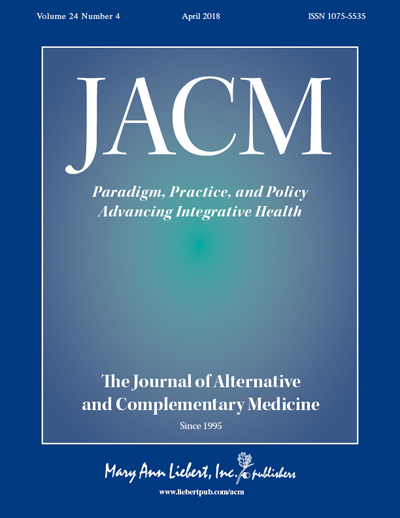
Randomised Controlled Trial
Certain essential oils such as lavender, neroli, jasmine, roman chamomile, clary sage, and Indian sandalwood can potentially increase oxytocin concentrations in postmenopausal women.
Tarumi W, Shinohara K
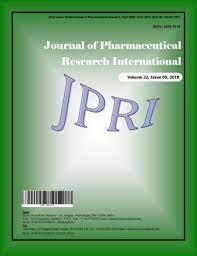
Clinical Study
Children with asthma, aged between 2 and 18, were found to be significantly shorter than their healthy counterparts.
Mohamadi Sorme F, Tabarra M, Alimadady H, Rahimi R, Sepidarkish M, Karimi M

Randomised Controlled Trial
The combination of ginger and chamomile was as effective as mefenamic acid in managing dysmenorrhea pain and more efficient in reducing related symptoms.
Shabani F, Zareian MA

Systematic Review
Chamomile shows promise in alleviating premenstrual syndrome (PMS) symptoms.
Khalesi ZB, Beiranvand SP, Bokaie M

Meta-Analysis
Chamomile has demonstrative positive effects on generalized anxiety disorders and sleep quality, but exhibits minimal impact on state anxiety and insomnia.
Hieu TH, Dibas M, Surya Dila KA, Sherif NA, Hashmi MU, Mahmoud M, Trang NTT, Abdullah L, Nghia TLB, Y MN, Hirayama K, Huy NT

Randomised Controlled Trial
Chamomile extract significantly improved sleep quality among the elderly, suggesting its potential as a safe sleep-promotion tool for this population.
Adib-Hajbaghery M, Mousavi SN
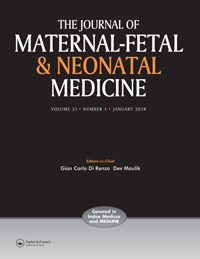
Case Report
Chamomile consumption may stimulate abundant milk production and increase lactogenesis in lactating women.
Silva FV, Dias F, Costa G, Campos MG

Theoretical Article
Chamomile, with its numerous terpenoids and flavonoids, has a vast range of medicinal uses and is being developed as a human health promoting therapeutic agent.
Gupta
Executive Summary
Write an executive summary in the form of a blog article on the topic of "Research into Chinese medicine treatment for Chamomile" summarising the research below and using language that can be easily understood by patients and avoiding medical jargon using a professional and caring tone of voice.
Write an executive summary in the form of a blog article on the topic of "Researched Chinese medicine treatments for Chamomile" summarising the research below in an objective and easy to understand way, and using language that can be easily understood by patients. Group the article into Chinese medicine treatments first, followed by nutrition and other treatments. Avoid using medical jargon and use a professional and caring tone of voice.
Write me a concise but easy to understand executive summary on the topic of "Chinese medicine treatments for Chamomile" based on the following research that I will give you. Your summary should be 2 paragraphs long in Australian English spelling and include references to the studies.
A Randomised Controlled Trial published in 2022 in the journal Heliyon found that The combined use of chamomile and saffron with usual medication enhances the efficacy against depression and ensures long term improvement. This research was a randomized, open, blinded trial with 120 participants split evenly into a test and control group. After consent was obtained, a patient health questionnaire was filled out to determine depression scores. Participants in the test group received herbal tea sachets, containing 20 mg of chamomile and 1 mg of saffron, twice per day for a month in addition to their regular medications. Control group participants only received their standard allopathic medicine. Blood samples were taken both before and after the treatment period. The test showed significant improvement in depressive symptoms for both groups. However, in the test group, the addition of the herbal teas amplified the effect of the medications. The herbal adjuvant therapy reduced inflammatory markers and tryptophan levels in plasma, which increased the availability of tryptophan in the brain, a key aspect in managing depression. Consequently, the research concluded that inclusion of these herbs enhances the effectiveness of the conventional treatment against depression and provides long term benefits.
A Randomised Controlled Trial published in 2022 in the journal The Open Public Health Journal found that Chamomile sachets could be a viable alternate treatment for primary dysmenorrhea, as they've shown similar effects to mefenamic acid in reducing pain and bleeding. In the methodology of this study, the researchers took 200 female students diagnosed with primary dysmenorrhea and divided them randomly into two groups. One group was given mefenamic acid and the other group was administered chamomile. The intensity of pain, related symptoms, and bleeding were assessed using various measurement scales. Evaluating the results, both chamomile and mefenamic acid made a noticeable impact in decreasing the intensity of pain and bleeding. However, it was found that chamomile displayed a greater effectiveness in reducing the symptoms of primary dysmenorrhea, presenting it as a promising substitute treatment avenue.
A Randomised Controlled Trial published in 2022 in the journal Explore: The Journal of Science & Healing found that Inhalation aromatherapy using lavender and chamomile essential oils effectively reduces depression, anxiety, and stress levels in community-dwelling older adults. From a methodological perspective, the researchers adopted a three-armed, parallel, randomized, and controlled trial design. A total of 183 participants were enrolled in the study and were randomly divided into three groups: lavender, chamomile, and control group with equal numbers in each. The individuals in the experimental groups were given three drops of 1.5% lavender and chamomile essential oils to inhale for 30 consecutive nights, while the control group inhaled distilled water in the same manner. The Depression, Anxiety, and Stress-Scale (DASS) was utilized to collect data both prior to the intervention, directly following the intervention, and a month after the treatment. In terms of the results gathered, there was significant improvement in the depression, anxiety, and stress levels of individuals in the lavender and chamomile groups both immediately and one month after the treatment compared to the control group. This indicates that inhalation aromatherapy utilizing lavender and chamomile essential oils can be efficacious in reducing mental health issues among older adults residing in the community.
A Randomised Controlled Trial published in 2022 in the journal The Journal of Sexual Medicine found that Chamomile vaginal gel effectively improved the sexual function of postmenopausal women, and can be a potential treatment option for those unable to undergo hormone therapy. The structured methodology involved a randomized, double-blind clinical trial, where 96 postmenopausal women with known sexual dysfunction were divided equally into three groups. Each group respectively received chamomile vaginal gel, conjugated estrogen vaginal cream, and placebo vaginal gel, for 12 weeks. The frequency of application varied over the course of the weeks. Measurements were made using the Female Sexual Function Index (FSFI) before and after the intervention. Data analysis implied chi-square, one-way ANOVA, descriptive statistics, and paired t-tests. Despite the study's duration of 12 weeks, no follow-up was done past this time frame. The study also recorded experiences of side effects, with a few women reporting a burning sensation. The results showed substantial improvement in all six sexual function domains and the total FSFI score for those women using chamomile vaginal gel when compared to the placebo. The chamomile gel showed no significant difference with the estrogen cream, except in the areas of orgasm and sexual satisfaction. This places chamomile vaginal gel as a considerable alternative for treating sexual dysfunction in postmenopausal women, especially for those who have contraindications to hormone therapy.
A Randomised Controlled Trial published in 2022 in the journal Evidence-Based Practice found that Chamomile was found to be less effective than mefenamic acid for relieving cyclic menstrual pain. In the methodology deployed, the researchers conducted a randomized controlled trial to compare the effectiveness of chamomile and mefenamic acid in treating menstrual pain. The patients involved in the study were randomly assigned to receive either chamomile or mefenamic acid as a form of treatment for their cyclic menstrual discomfort. In the subsequent discussion of results, it was determined that chamomile was not as effective as mefenamic acid in alleviating menstrual pain. The patients who were administered chamomile did not experience as much relief from their discomfort as those who were given mefenamic acid. Despite chamomile's widely acknowledged health benefits, in this case, it did not prove as successful as the more traditional treatment method in providing sufficient pain relief.
A Randomised Controlled Trial published in 2022 in the journal Medicinal Plants - International Journal of Phytomedicines and Related Industries found that Chamomile can significantly improve menstrual regulation and decrease testosterone levels in women of reproductive age with polycystic ovary syndrome. In this randomized clinical trial, 80 women of reproductive age diagnosed with polycystic ovary syndrome were divided into two groups – intervention and control. The intervention group was given a chamomile capsule three times a day over the course of 12 weeks. The control group received a placebo with the same prescription timing. The menstrual patterns and two androgens, testosterone and dehydroepiandrosterone, were evaluated before and after this three-month period. The primary outcome observed was a significant increase in the number of participants with normal menstrual cycles in the chamomile capsules user group. Alongside this, a major improvement in the number of menstrual cycles after chamomile therapy was seen. A noteworthy decrease was also observed in testosterone levels amongst women in the intervention group whereas there was no significant change in the level of hormone dehydroepiandrosterone sulfate in either the intervention or control groups. This demonstrates that chamomile could potentially help regulate menstruation and decrease total testosterone levels in women struggling with polycystic ovary syndrome.
A Randomised Controlled Trial published in 2021 in the journal Current Reviews in Clinical and Experimental Pharmacology found that Inhalation of chamomile oil significantly reduces pain after cesarean section in first-time mothers, decreasing the need for analgesics. The study was a randomized, double-blind clinical trial involving 128 first-time pregnant women who elected to have a cesarean section. Participants were either given one drop of 5% chamomile oil, or a placebo drop, which they inhaled for 15-20 minutes from a distance of 5 cm from their noses, concurrently at 4, 8, and 12 hours after surgery. Pain intensity was measured using the Visual Analog Scale (VAS) both half an hour before and after the inhalation. The results revealed that there was no significant statistical difference between the chamomile and placebo group regarding baseline pain prior to the intervention. However, after the administration of the chamomile oil or placebo, a significant difference in pain was observed at 4, 8, and 12 hours after the intervention. Chamomile oil inhalation was found to dramatically reduce the intensity of pain compared to the post-intervention pain experienced by the placebo group. The use of chamomile oil as a form of aromatherapy after the cesarean section was noted to not only reduce pain in first-time mothers, but also lessen their need for analgesics.
A Randomised Controlled Trial published in 2021 in the journal European Journal of Obstetrics & Gynecology and Reproductive Biology: X found that Chamomile capsules prove effective in reducing emotional symptoms related to menstrual cycles. In the methodology of this clinical trial, 118 Guilan University students were split into two groups – one receiving chamomile capsules, the other a placebo – with each participant taking one capsule every eight hours for seven days before menstruation. The Premenstrual Symptoms Screening Tool was used to gather data. The assessment of the results reveals that the group of students who consumed the chamomile capsules observed a more noteworthy decrease in menstrual-related mood disorders when compared to the placebo group. Moreover, even after controlling for other variables, there was a significant difference between the two groups in terms of changes in mood symptom severity.
A Randomised Controlled Trial published in 2020 in the journal Current Women s Health Reviews found that The use of ginger, chamomile, and honey significantly diminished the intensity of dysmenorrhea pain as compared to the use of mefenamic acid. Methodology: The research involved 200 female students from Arak universities, suffering from primary dysmenorrhea. These participants were randomly divided into two groups. Initially, one cycle without any intervention was evaluated for all students. Following this, group A was administered 250mg of mefenamic acid while group B received a combination of 1000mg ginger, 5000mg chamomile along with a teaspoonful of honey. This regimen was followed for two days prior and for the first three days of menstruation, administered three times daily and was carried out over two consecutive cycles. To measure the pain severity, associated symptoms of dysmenorrhea and bleeding, tools such as a visual analogue scale, Andersch-Milsom Verbal Scale, and Higham chart were used. Discussion of Results: Following the intervention, the pain intensity experienced by the group treated with ginger, chamomile, and honey was found to decrease significantly when compared to the group that was administered mefenamic acid.
A Randomised Controlled Trial published in 2020 in the journal Journal of Pharmacopuncture found that Chamomile capsules can decrease the amount of menstrual bleeding and thus, can offer remedy for women suffering from heavy periods. The study was conducted as a randomized, double-blind, clinical trial with 118 female students from Guilan University of Medical Sciences. Participants were split into two groups of 59, with one group receiving chamomile capsules 250 mg thrice a day, and the other a placebo. Treatment was started seven days before menstruation and continued until the next menstrual onset. The Higham chart, a pictorial tool that assesses blood loss, was used to quantify the amount and duration of menstrual bleeding. The study found that on average, the quantity of menstrual bleeding was reduced in the group that took the chamomile capsules. However, there was no significant difference observed in the duration and interval between bleeding in both groups, indicating that while chamomile may decrease the amount of blood loss, it has no effect on the timing of menstrual cycles. These results establish chamomile as a potential treatment for reducing heavy menstrual bleeding.
A Randomised Controlled Trial published in 2020 in the journal The Journal of Alternative and Complementary Medicine found that Certain essential oils such as lavender, neroli, jasmine, roman chamomile, clary sage, and Indian sandalwood can potentially increase oxytocin concentrations in postmenopausal women. In this study, fifteen postmenopausal women were subjected to the effects of ten different essential oils one at a time. The oils exposed to included rose otto, sweet orange, lavender, neroli, frankincense, jasmine absolute, ylang ylang, roman chamomile, clary sage, and Indian sandalwood. Initially, they were exposed to a control for 20 minutes, followed by exposure to an essential oil for 20 minutes. Each woman was exposed to only a single kind of essential oil per day. Saliva was collected immediately before and after both control exposure and essential oil exposure. The oxytocin levels in the saliva were then measured. The findings revealed an increase in salivary oxytocin concentrations following exposure to six out of the ten essential oils. Specifically, lavender, neroli, jasmine absolute, roman chamomile, clary sage, and Indian sandalwood were associated with a significant increase in salivary oxytocin when compared to the control odor. This study implies that olfaction stimulation with the listed essential oils might help counter the reduction of muscle mass and function caused by aging in women.
A Clinical Study published in 2020 in the journal Journal of Pharmaceutical Research International found that Children with asthma, aged between 2 and 18, were found to be significantly shorter than their healthy counterparts. In the methodology of this case-control study, 150 children with asthma, aged 2-18 years, were compared to a carefully matched control group of 300 healthy children. Both groups had their height, weight, and body mass index measured through standard methods. Data for these anthropometric indices were processed and analysed using designated software and statistical tests, excluding any height, weight and BMI ranges that were deemed 'normal' or 'abnormal'. In discussing the results, it was observed that asthmatic children were significantly shorter than the control group. Interestingly, there were no observed differences in weight and body mass index between the two groups. This potentially suggests that the presence of asthma may not have a significant growth-altering effect, or this phenomenon might be attributed to effective disease management among the asthma group.
A Randomised Controlled Trial published in 2020 in the journal Complementary Medicine journal found that The combination of ginger and chamomile was as effective as mefenamic acid in managing dysmenorrhea pain and more efficient in reducing related symptoms. The methodology used was a randomized controlled clinical trial involving 400 female students from Arak University. Four groups of participants were created, each with 100 students. The treatments given to these groups were ginger with honey, chamomile with honey, a mix of ginger and chamomile with honey, and mefenamic acid. The participants consumed their respective treatments three times daily, starting from two days before menstruation and continuing into the first three days of the cycle, for two consecutive periods. The pain intensity, related symptoms, and bleeding were evaluated over the first three days of each cycle, both one month before treatment and two months after it. The study found that all four treatment options significantly decreased pain severity, painful days, low back pain, analgesic consumption, total symptom score, and bleeding. Again the blend of ginger and chamomile was notably better than the other treatments in lowering the total symptom score. Meanwhile, mefenamic acid was particularly effective at reducing bleeding loss. Despite these differences, there was no significant variation among the groups outside of total symptom score and bleeding loss.
A Systematic Review published in 2019 in the journal Journal of Pharmacopuncture found that Chamomile shows promise in alleviating premenstrual syndrome (PMS) symptoms. This review examines the efficacy of chamomile in treating premenstrual syndrome (PMS), a condition characterized by physical and psychological symptoms. Eight randomized controlled trials (RCTs) met the inclusion criteria out of 27 identified studies. Chamomile, known for its anti-inflammatory, anti-spasmodic, and anti-anxiety properties, showed promise in alleviating PMS symptoms. It was compared with Mefenamic Acid (MA), placebo, and no treatment, with positive results. While existing studies suggest chamomile's effectiveness, the authors emphasize the need for further trials with diverse forms and doses, larger populations, and longer durations. Chamomile, as a readily available herbal remedy, offers potential relief for PMS symptoms in women.
A Meta-Analysis published in 2019 in the journal Phytotherapy Research found that Chamomile has demonstrative positive effects on generalized anxiety disorders and sleep quality, but exhibits minimal impact on state anxiety and insomnia. The methodology of this study involved rigorous systematic review and meta-analysis across multiple databases, including PubMed, Science Direct, Cochrane Central, and Scopus. The aim was to determine the efficacy and safety of chamomile for managing state anxiety, generalized anxiety disorders, sleep quality and insomnia in humans. Relevant randomized control trials were retrieved, yielding a total of 12 trials used for this study. Statistical analyses were performed with the meta package of R statistical software version 3.4.3 and RevMan version 5.3. The results indicated that chamomile had a significant positive effect on generalized anxiety disorders (GAD) and improved sleep quality. Improvements in GAD were observed after 2 and 4 weeks of chamomile treatment. However, no significant effects were noted in the treatment of state anxiety or insomnia. Mild adverse events were reported in three trials. In conclusion, chamomile was determined to be effective and safe for treating GAD and improving sleep quality, but showed less impact on state anxiety and insomnia.
A Randomised Controlled Trial published in 2017 in the journal Complementary Therapies in Medicine found that Chamomile extract significantly improved sleep quality among the elderly, suggesting its potential as a safe sleep-promotion tool for this population. In a single-blind randomized controlled trial, sixty elderly individuals from a daycare nursing home in Karaj, Iran, were randomly assigned into a control group or a treatment group. Those in the treatment group received 200mg chamomile extract capsules, administered twice daily for 28 consecutive days, while the placebo group received 200mg capsules of wheat flour in the same manner. Sleep quality was evaluated using the Pittsburgh Sleep Quality Index at four different time points: immediately before the experimental period, two weeks into the study, right after completing the 28-day cycle, and two weeks post-intervention. Results showed no significant difference between the control and treatment groups in their baseline sleep quality, with both presenting poor scores. However, following the 28-day intervention, the treatment group, who received chamomile extract, demonstrated notably better sleep quality than the placebo group, with the exception of the habitual sleep efficiency component of the Sleep Quality Index. These findings suggest that chamomile extract can be employed as a safe and effective means to enhance the sleep quality of elderly people.
A Case Report published in 2017 in the journal The Journal of Maternal-Fetal & Neonatal Medicine found that Chamomile consumption may stimulate abundant milk production and increase lactogenesis in lactating women. In the report, a woman accidentally discovered an unexpected outcome - an abundant amount of milk and high breast tension - a few hours after consuming chamomile. This observation has not been documented before and sheds light on a possible natural means of stimulating milk production. Regular consumption of chamomile during pregnancy and lactation is well-known for various reasons, but this galactagogue effect, that is the promotion of lactation, has never been reported previously. The woman’s case was carefully documented and analysed to draw a correlation between chamomile intake and this resulting effect. The potential galactagogue effect of chamomile presents an interesting but unfamiliar aspect. This insight could be potentially useful for mothers struggling with breastfeeding,with the caveat being that the safety of this herbal product's intake without risk to mothers or newborns is still under scrutiny. The results are unexpected and novel, pointing towards a potential new benefit of chamomile tea for lactating women - stimulating lactogenesis. However, the conclusions are drawn from a single case and further in-depth studies are required to confirm this effect and to understand the underlying biological mechanisms at work.
A Theoretical Article published in 2010 in the journal Molecular Medicine Reports found that Chamomile, with its numerous terpenoids and flavonoids, has a vast range of medicinal uses and is being developed as a human health promoting therapeutic agent. Methodology: The study conducted a detailed review of the usage of chamomile in traditional medicine. Specific attention was given to the two most common varieties: German Chamomile and Roman Chamomile. The researchers focused on the terpenoids and flavonoids contained in the dried flowers of the chamomile plant, known contributors to its medicinal properties. The various preparations of chamomile were taken into account, with a particularly strong focus on its form in herbal tea, a favorite among users. Discussion of Results: Chamomile has been found to be effective in treating a wide array of human ailments, such as hay fever, inflammation, menstrual disorders, insomnia, wounds, and several gastrointestinal disorders. Furthermore, the essential oils of chamomile are used extensively in aromatherapy and cosmetics, demonstrating its diverse range of applications. The application of chamomile in promoting human health is, therefore, not only diverse but also shows promising potential in developing as a therapeutic agent.
Moderation Tools
Topic
Sign In
Users not signed in are limited to viewing the 5 most recent items of content.